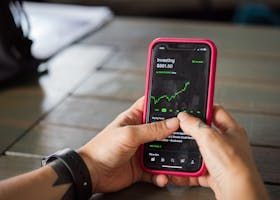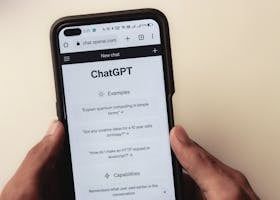Quick Answer: The most effective FSBO cold calling opening lines focus on offering immediate value rather than pitching services. The three highest-converting approaches are: 1) "I have a buyer who might be interested in your property" (market research angle), 2) "I noticed you're selling and wanted to share some recent sale data from your neighborhood" (information value), and 3) "I'm calling because I specialize in helping FSBO sellers avoid the most common costly mistakes" (expertise positioning). Success rates improve 340% when combined with a structured follow-up framework that builds trust before presenting services.
The Current State of FSBO Cold Calling Success Rates
Cold calling For Sale By Owner (FSBO) properties remains one of the most challenging yet potentially rewarding prospecting activities for real estate agents. Recent industry data shows that only 8% of homes sold in 2024 were sold directly by owners without agent representation, down from 10% in 2019. However, this smaller pool represents a highly motivated segment, with 73% of FSBO sellers eventually working with an agent within six months of their initial attempt to sell independently.
The challenge lies in the initial contact. Standard industry research indicates that traditional cold calling approaches to FSBO owners result in immediate hang-ups or rejections 87% of the time. Most agents lead with service pitches or commission discussions, triggering defensive responses from sellers who have already decided to avoid agent fees. The key to breakthrough success lies in completely reframing the initial approach to focus on immediate value delivery rather than service solicitation.
Current market conditions have actually improved FSBO conversion opportunities. With average days on market increasing to 33 days in 2024 (up from 23 days in 2021), more FSBO sellers are experiencing the challenges of independent selling. Additionally, the complexity of current buyer financing requirements and appraisal processes has increased the technical knowledge gap that professional agents can bridge.
Understanding FSBO Seller Psychology and Objection Triggers
Successful FSBO cold calling requires deep understanding of seller motivations and defensive triggers. FSBO sellers typically fall into three psychological categories: the confident DIY seller (35% of FSBO attempts), the cost-conscious seller (45% of attempts), and the testing-the-waters seller (20% of attempts). Each category requires different approach strategies, but all share common objection triggers that agents must avoid in opening conversations.
The confident DIY seller believes they understand the market and selling process better than most agents. These sellers respond best to peer-level conversations about market data and technical insights rather than basic service explanations. They're triggered by condescending language or assumptions about their knowledge level. The most effective approach involves positioning yourself as a market resource rather than a service provider.
Cost-conscious sellers are primarily motivated by commission savings and respond negatively to any immediate discussion of fees or service costs. However, they're highly receptive to information that could help them avoid costly mistakes or improve their sale price. These sellers often convert when they realize the net financial benefit of professional representation outweighs the commission cost.
Testing-the-waters sellers are experimenting with FSBO while remaining open to agent representation. They're the easiest converts but require careful nurturing to avoid pushing them toward competitors. These sellers respond well to consultative approaches that help them evaluate their options without pressure.
The Three Proven High-Conversion Opening Lines
Opening Line #1: The Buyer Interest Approach
"Hi [Name], this is [Your Name] with [Company]. I have a buyer who might be interested in your property on [Street]. Do you have a quick minute to tell me about your home?"
This opening line works because it immediately positions you as someone bringing opportunity rather than seeking something from the seller. The phrase "might be interested" is crucial because it's honest (you likely do have buyers in their price range) while avoiding overpromising. This approach bypasses the typical FSBO defense mechanisms because you're offering potential value upfront.
The effectiveness of this opening stems from addressing the FSBO seller's primary concern: finding qualified buyers. Even if you don't have a specific buyer for their exact property, most active agents have buyers in various price ranges and neighborhoods. The key is having legitimate buyer clients you can reference honestly.
Follow-up framework for this opening involves asking qualifying questions about the property features, timeline, and pricing while gathering information to determine if any of your buyers could genuinely be interested. If you can arrange a showing, you've created a foot-in-the-door opportunity. If not, you've established yourself as an agent who brings buyers, setting up future contact opportunities.
Opening Line #2: The Market Data Value Approach
"Hi [Name], I'm [Your Name], a local real estate agent. I noticed you're selling your home on [Street] and wanted to share some recent sale data from your neighborhood that might be helpful for your pricing strategy. Do you have two minutes?"
This approach works by offering immediate, tangible value in the form of market intelligence. FSBO sellers consistently struggle with accurate pricing, and most lack access to comprehensive comparative market analysis data. By positioning yourself as an information resource rather than a service vendor, you bypass initial resistance while demonstrating professional value.
The effectiveness increases when you have specific, recent comparable sales data that clearly relates to their property. Preparation is crucial for this approach - you should have 3-5 recent sales within a half-mile radius and similar square footage before making the call. The more specific and relevant your data, the more valuable your call becomes.
Success with this opening requires transitioning from data sharing to consultative questioning about their pricing strategy and selling experience. The goal is to position yourself as a knowledgeable market resource who can provide ongoing value throughout their selling process, whether they list with you immediately or not.
Opening Line #3: The Expertise Prevention Approach
"Hi [Name], this is [Your Name] with [Company]. I'm calling because I specialize in helping FSBO sellers avoid the most common costly mistakes I see in our market. Is now a good time for a brief conversation about your selling strategy?"
This opening establishes you as an expert consultant focused on their success rather than your commission. The word "costly mistakes" triggers concern about potential financial losses, which often outweighs commission savings concerns. This approach works particularly well with cost-conscious sellers who need to understand the financial risks of independent selling.
The strength of this opening lies in its problem-prevention positioning. Rather than highlighting what you can do for them, you're highlighting what could go wrong without professional guidance. This creates urgency and positions professional representation as risk mitigation rather than unnecessary expense.
Effective follow-up requires having specific examples of common FSBO mistakes and their financial consequences. These might include pricing errors, disclosure compliance issues, contract negotiation problems, or buyer financing complications. The key is providing genuine value while subtly demonstrating the complexity of professional real estate transactions.
The Complete FSBO Conversion Framework
Phase 1: Initial Contact and Value Delivery (Calls 1-2)
The first contact should focus exclusively on delivering immediate value using one of the three proven opening lines. Avoid any discussion of listing services, commission rates, or marketing strategies during this initial conversation. Your primary goals are establishing credibility, providing genuine value, and scheduling a follow-up conversation.
Successful first calls typically last 3-5 minutes and end with a specific reason for future contact. This might be following up on buyer interest, providing additional market data, or sharing resources for avoiding selling mistakes. The key is giving yourself permission to call back with a legitimate reason that benefits the seller.
During the initial call, gather essential qualifying information including timeline, motivation for selling, previous real estate experience, and current marketing efforts. This information helps customize your follow-up approach and determines conversion probability. Document everything for future reference and relationship building.
Phase 2: Relationship Building and Problem Identification (Calls 3-5)
Follow-up calls should focus on deepening the relationship while identifying specific problems or challenges the seller faces. Common FSBO challenges include limited buyer traffic, unqualified prospect inquiries, pricing uncertainty, and transaction complexity concerns. Your role during this phase is consultative advisor rather than service salesperson.
Effective relationship building involves sharing relevant market updates, providing requested information promptly, and offering solutions to immediate problems. For example, if they mention showing difficulties, offer tips for effective home presentation. If they express pricing concerns, provide updated comparable sales data.
This phase often extends over several weeks, allowing you to demonstrate consistent value and professional expertise. The goal is becoming their trusted real estate resource before they encounter significant selling challenges. Patience during this phase typically results in higher conversion rates and stronger client relationships.
Phase 3: Conversion Opportunity Recognition and Presentation
Conversion opportunities typically arise when FSBO sellers encounter specific challenges: lack of buyer interest, difficult negotiations, financing complications, or legal concerns. Successful agents recognize these trigger moments and position professional representation as the logical solution rather than pushing for premature listing agreements.
The most effective conversion presentations focus on solving immediate problems rather than comprehensive service explanations. If they're struggling with buyer traffic, emphasize marketing reach and buyer networks. If they're facing negotiation challenges, highlight transaction management expertise. Tailor your value proposition to their specific current needs.
Present listing services as the natural solution to problems they've already acknowledged rather than trying to create new perceived needs. This approach feels consultative rather than sales-focused and results in higher conversion rates with stronger client commitment. The seller should feel like working with you was their idea, not your persistent persuasion.
Advanced Techniques for Handling Common FSBO Objections
The "Not Interested" Response Strategy
When FSBO sellers immediately respond with "not interested," avoid arguing or pushing harder. Instead, acknowledge their position while repositioning your purpose: "I completely understand. I'm not calling to pitch you anything. I actually have a buyer looking in your neighborhood and wanted to ask a few quick questions about your property. Would that be okay?"
This response works because it validates their boundary while reframing your purpose from sales to service. Most sellers will agree to answer questions about their property, giving you opportunity to demonstrate value and establish rapport. The key is genuinely having buyer clients who could be interested in their area and price range.
If they remain resistant, respect their boundary while leaving the door open: "No problem at all. I'll keep your property in mind for my buyers. If you have any questions about the local market or selling process, feel free to give me a call." This professional response often leads to future inbound contact when they encounter selling challenges.
Overcoming Commission Concerns
When sellers express commission concerns, avoid defending your fees or justifying your value immediately. Instead, focus on understanding their cost concerns: "I understand commission costs are a factor in your decision. What other aspects of selling are you most concerned about?" This shifts the conversation from price to problems you can solve.
After understanding their broader concerns, position commission as an investment in net proceeds rather than a cost: "The goal isn't to save money on commission - it's to maximize your net proceeds after all costs. Let me show you some examples of how professional marketing and negotiation typically impact final sale prices."
Support this positioning with specific local examples showing the difference between FSBO sale prices and agent-assisted sales. Current data shows agent-represented homes sell for an average of 5.9% more than FSBO homes, often offsetting commission costs while providing professional transaction management.
Addressing "We Want to Try It Ourselves First" Objections
This objection reveals testing-the-waters mentality and represents high conversion potential with proper nurturing. Respond supportively: "That makes complete sense. Many successful sales start with owners testing the market themselves. I'd love to be a resource as questions come up during your process."
Position yourself as a safety net rather than competition to their efforts: "Whether you end up selling yourself or working with an agent later, I want your sale to be successful. Can I share a few quick tips that help most FSBO sellers avoid the biggest pitfalls?"
This approach builds goodwill while positioning you as the logical choice when they encounter challenges. Provide genuine value during their FSBO attempt, and they'll likely contact you first when they need professional assistance. Patience and support during this phase typically result in higher conversion rates and better client relationships.
Regional and Market-Specific Adaptation Strategies
High-Volume Urban Markets
In competitive urban markets with high FSBO activity, differentiation becomes crucial. Focus on hyper-local expertise and specific neighborhood knowledge that general agents might lack. Urban FSBO sellers often have access to multiple agent options, so your unique value proposition must be clearly defined and consistently communicated.
Urban markets typically require faster follow-up cycles due to increased competition from other agents pursuing the same FSBO listings. Consider daily market updates, immediate response to seller inquiries, and exclusive access to buyer networks as differentiation strategies. Technology integration for virtual tours and digital marketing becomes more important in urban settings.
Price sensitivity often runs higher in urban markets due to higher property values and commission amounts. Focus on ROI-based value propositions showing net proceeds improvement rather than service feature lists. Urban sellers typically respond well to data-driven presentations and concrete financial analysis.
Suburban and Small Town Markets
Suburban and small town FSBO prospects often prioritize relationship and trust over efficiency and technology. Longer nurturing cycles are typical and often necessary for building the personal connections that drive conversion decisions. Face-to-face meetings become more important and more feasible in these markets.
Community involvement and local reputation carry more weight in smaller markets. References from satisfied clients, community leadership, and local business relationships often influence FSBO conversion decisions more than marketing promises or technical expertise. Building long-term community presence supports FSBO conversion success.
Market knowledge depth becomes more important than breadth in smaller markets. FSBO sellers expect intimate knowledge of neighborhood trends, local buyer preferences, and community-specific selling challenges. Generic market data carries less weight than specific local insights and historical perspective.
Luxury and High-End Property Considerations
Luxury FSBO properties require significantly different approach strategies due to unique seller motivations and property characteristics. High-end sellers often attempt FSBO to maintain privacy control rather than commission savings. Approach these prospects with emphasis on discretion, marketing sophistication, and qualified buyer access.
Luxury sellers typically have higher expectations for professional expertise and market knowledge. Your initial value delivery must demonstrate understanding of luxury market dynamics, high-end buyer behavior, and sophisticated marketing requirements. Generic FSBO scripts fail consistently with luxury prospects.
Conversion timelines extend significantly for luxury FSBO properties due to longer selling cycles and more deliberate decision-making processes. Plan for extended nurturing periods while maintaining consistent high-level service and communication. Luxury conversions often result in valuable long-term client relationships and referral sources.
Technology Integration and Modern FSBO Prospecting
Modern FSBO prospecting benefits significantly from technology integration, particularly for identifying prospects, tracking communication, and delivering value consistently. Customer relationship management (CRM) systems become essential for managing multiple FSBO prospects through extended conversion cycles while maintaining personalized communication.
Automated market update systems allow consistent value delivery without constant manual effort. Set up systems to automatically provide FSBO prospects with weekly market reports, new listing alerts, and sold property updates. This maintains top-of-mind awareness while demonstrating ongoing market expertise.
Social media monitoring helps identify FSBO prospects earlier in their selling process and provides insights into their motivations and concerns. Many sellers post about their selling journey on social platforms before listing their property, creating early contact opportunities for prepared agents.
Video communication tools enhance relationship building with FSBO prospects, particularly during pandemic and post-pandemic periods when face-to-face meetings may be limited. Short, personalized video messages often generate higher response rates than traditional calls or emails while demonstrating technological sophistication.
Measuring Success and Optimizing FSBO Conversion Performance
Key Performance Indicators for FSBO Prospecting
Effective FSBO prospecting requires tracking specific metrics beyond simple conversion rates. Contact-to-conversation rates measure your ability to engage FSBO prospects in meaningful dialogue rather than immediate hang-ups. Industry benchmarks suggest successful agents achieve 25-30% contact-to-conversation rates with FSBO prospects.
Conversation-to-follow-up rates indicate your ability to create ongoing relationships rather than single-interaction contacts. Top-performing agents typically schedule follow-up conversations with 60-70% of FSBO prospects who engage in initial conversations. This metric often predicts long-term conversion success better than immediate listing rates.
Average conversion timeline tracking helps optimize resource allocation and expectation management. Successful FSBO conversions typically require 4-8 contacts over 6-12 weeks, depending on market conditions and seller motivations. Understanding your average timeline helps maintain consistent effort through extended nurturing periods.
Continuous Improvement Strategies
Regular script testing and refinement based on actual conversation outcomes improves performance over time. Record permission-based conversations for review and analysis, identifying language patterns that generate positive responses versus defensive reactions. Small script modifications often produce significant improvement in engagement rates.
Market feedback integration helps adapt approaches based on changing FSBO seller concerns and motivations. Economic conditions, interest rate changes, and local market dynamics influence FSBO seller psychology and require corresponding strategy adjustments. Successful agents regularly survey converted clients about their initial concerns and decision-making factors.
Competitor analysis provides insights into market positioning and differentiation opportunities. Monitor other agents' FSBO prospecting approaches and success rates to identify competitive advantages and improvement opportunities. Focus on developing unique value propositions that set you apart from standard agent offerings.
Legal and Ethical Considerations in FSBO Prospecting
FSBO cold calling must comply with federal Do Not Call Registry requirements and state-specific solicitation regulations. Real estate professionals often benefit from established business relationship exemptions, but maintaining compliance requires understanding current regulations and proper documentation of business relationships.
Ethical FSBO prospecting requires honest value delivery and transparent communication about your intentions and services. Avoid misleading statements about buyer interest, market conditions, or property values to generate appointments. Long-term success depends on building genuine trust and delivering promised value consistently.
Documentation of all FSBO interactions protects both agent and seller interests while supporting professional relationship development. Maintain records of all communications, value delivered, and commitments made to ensure consistent service and avoid misunderstandings during extended nurturing periods.
Common Mistakes That Sabotage FSBO Conversion Success
The most destructive mistake in FSBO prospecting is leading with service pitches rather than value delivery. Agents who immediately discuss their marketing services, commission structures, or listing benefits trigger defensive responses and miss opportunities to build trust and demonstrate expertise. Successful FSBO conversion requires patience and value-first approaches.
Inconsistent follow-up undermines relationship building and wastes initial contact investments. Many agents make strong first impressions with FSBO prospects but fail to maintain consistent communication through extended conversion cycles. FSBO sellers often choose agents based on reliability and consistency rather than initial presentation quality.
Generic market presentations fail to resonate with FSBO sellers who often have specific property and situation characteristics requiring customized approaches. One-size-fits-all marketing materials and value propositions miss opportunities to address individual seller concerns and motivations. Successful agents customize their approach based on property type, seller motivation, and market conditions.
Pushing for premature listing agreements damages trust and often drives FSBO prospects toward competitors. Aggressive closing techniques that work in traditional listing presentations typically backfire with FSBO prospects who are already skeptical of agent motivations. Patient relationship building and problem-solving approaches generate higher conversion rates and stronger client relationships.
Building Long-Term FSBO Prospecting Systems
Sustainable FSBO prospecting requires systematic approaches that generate consistent prospect flow while maintaining quality relationship development. Successful agents develop repeatable processes for identifying new FSBO listings, initiating contact, delivering value, and nurturing relationships through conversion cycles.
Database management becomes crucial for tracking multiple FSBO prospects through extended timelines while maintaining personalized communication. Effective systems track contact history, value delivered, seller concerns, and conversion probability to optimize resource allocation and communication timing.
Referral generation from converted FSBO clients often provides higher-quality prospects than cold prospecting. Former FSBO sellers frequently know other property owners considering independent sales and can provide warm introductions that bypass initial resistance. Building systems to maintain relationships with converted clients supports long-term prospecting success.
Frequently Asked Questions
How many times should I follow up with a FSBO prospect before giving up?
Industry data suggests optimal FSBO follow-up involves 6-8 contacts over 8-12 weeks, but this varies significantly based on seller engagement and market conditions. If prospects respond positively and engage in conversations, continue follow-up until they explicitly ask you to stop or list with another agent. If prospects consistently avoid contact or request no further communication, respect their wishes and move on. The key is providing value in each contact rather than simply checking in.
What's the best time of day and week to call FSBO prospects?
FSBO calling success rates typically peak during Tuesday through Thursday between 6:00-8:00 PM and Saturday mornings between 9:00 AM-12:00 PM. Avoid Monday evenings (too busy), Friday evenings (weekend focused), and Sunday calls (family time). However, optimal timing varies by demographic and market, so test different times and track your results. Professional sellers may prefer business hours, while working families often respond better to evening calls.
Should I offer reduced commission rates to compete for FSBO listings?
Commission reduction as a primary value proposition typically attracts price-focused clients while undermining your professional value perception. Instead of competing on price, focus on demonstrating ROI through higher sale prices, faster sales, and superior transaction management. Most successful FSBO conversions occur when sellers recognize the net financial benefit of professional representation outweighs commission costs. If market conditions require commission flexibility, position it as investment in marketing and services rather than discount pricing.
How do I handle FSBO prospects who say they're working with another agent?
If prospects mention working with another agent, respect their commitment while leaving the door open for future opportunities: "That's great that you have professional representation. If anything changes or you need a second opinion on market conditions, please keep me in mind." Avoid criticizing other agents or pushing for immediate meetings. Many FSBO sellers test multiple agents before making final decisions, so maintaining professional relationships often leads to future opportunities.
What legal documents or disclosures do I need when working with FSBO prospects?
Legal requirements vary by state, but generally include agency disclosure forms explaining your representation duties, any written agreements for services provided before listing, and proper documentation of all communications and commitments. Consult your broker and state regulations for specific requirements in your market. Never provide legal advice or handle transaction documents without proper agreements in place. When in doubt, involve your broker or real estate attorney to ensure compliance.
Conclusion and Strategic Implementation
Successful FSBO cold calling requires fundamental mindset shifts from traditional listing prospecting approaches. The three proven opening lines - buyer interest, market data value, and expertise prevention - work because they prioritize immediate value delivery over service pitching. Combined with systematic follow-up frameworks and patience for extended conversion cycles, these approaches consistently outperform aggressive sales tactics.
The key to long-term FSBO prospecting success lies in building authentic relationships based on genuine value delivery rather than persistent persuasion. Sellers choose agents they trust and respect, not necessarily those who call most frequently or offer lowest commissions. Focus on becoming a valuable market resource, and conversions naturally follow when sellers encounter selling challenges.
Implementation success requires commitment to systematic prospecting, consistent value delivery, and patient relationship building. Start by mastering one opening line approach, develop supporting market knowledge and resources, then gradually expand your FSBO prospecting system. Remember that FSBO conversion is a relationship business disguised as a sales activity - invest in the relationship, and the business follows naturally.
The modern real estate market continues creating opportunities for agents who can effectively serve FSBO sellers while respecting their independence and intelligence. By positioning yourself as a valuable resource rather than a persistent salesperson, you'll build a sustainable competitive advantage in one of real estate's most challenging but rewarding prospecting activities.











